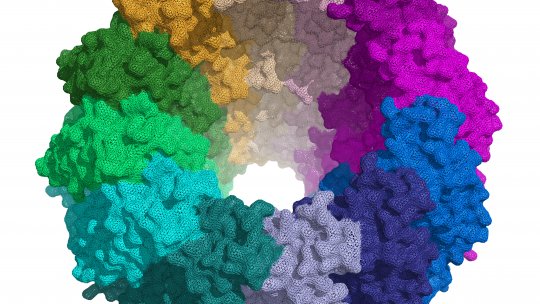Images
Participants

Contact

The newspaper La Vanguardia and the specialised journals SINC and Diario Médico, among other media, have published articles on two studies performed by researchers at IRB Barcelona and the Molecular Biology Institute of Barcelona (IBMB-CSIC). The studies describe the structure of the portal protein of the Epstein-Barr virus and bacteriophage T7, which is crucial for infection by these two viruses. Although the Epstein-Barr virus, which causes glandular fever (also known as mononucleosis) and various kinds of cancer, is one of the most common viruses found in humans, there is still no treatment available. “Understanding the structure of the portal protein could be useful for the design of drugs for the treatment of herpesvirus infections such as Epstein-Barr,” says Miquel Coll, researcher at IRB Barcelona and CSIC. Published in Nature Communications, the study is a collaboration with the National Centre for Biotechnology (CNB-CSIC) and the University of Oxford (UK).
Link to La Vanguardia
Link to SINC
Link to Diario Médico
About IRB Barcelona
The Institute for Research in Biomedicine (IRB Barcelona) pursues a society free of disease. To this end, it conducts multidisciplinary research of excellence to cure cancer and other diseases linked to ageing. It establishes technology transfer agreements with the pharmaceutical industry and major hospitals to bring research results closer to society, and organises a range of science outreach activities to engage the public in an open dialogue. IRB Barcelona is an international centre that hosts 400 researchers and more than 30 nationalities. Recognised as a Severo Ochoa Centre of Excellence since 2011, IRB Barcelona is a CERCA centre and member of the Barcelona Institute of Science and Technology (BIST).




